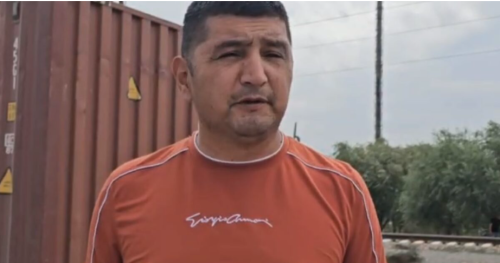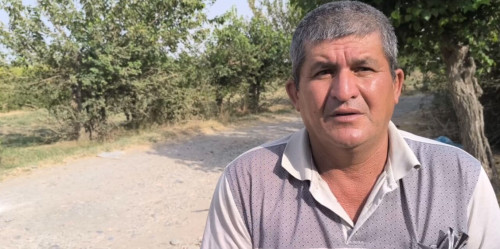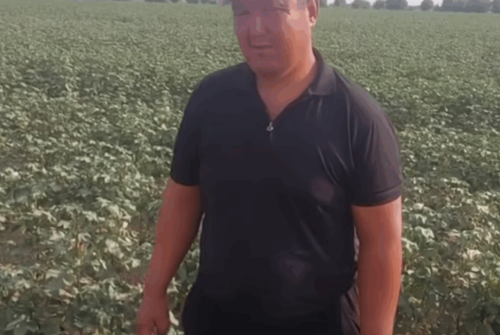Countries
Solidarity campaigns
13 August 2024
Georgia: Support striking workers at Evolution Gaming
5 June 2023
Georgia: Justice for Wolt couriers
10 May 2023
Belarus: Trade union activity is not extremism!
2 November 2019
Kazakhstan: Trade unionist Erlan Baltabay imprisoned - again!
19 November 2018
Kazakhstan: Stop repression and physical attacks on leaders of independent unions; hands off Larisa Kharkova, Erlan Baltabai and Dmitriy Senyavskiy
18 April 2018
MALOKHAT STILL NEEDS YOUR HELP
News
30 September, 2025 / uzbekistan
Air Samarkand faces difficulties paying staff salaries
Reports have surfaced that nearly 50 Russian nationals have not received salaries from Uzbekistan’s Air Samarkand airline for three months. The company confirmed the issue, citing unexpected expenses that created “financial challenges” and pledging to prioritize repayment of wage arrears.
20 September, 2025 / uzbekistan
ARBITRARY POLICE BRUTALITY AGAINST FARMERS IS NOT COMPATIBLE WITH A SUSTAINABLE COTTON SECTOR
Azizjon Tojiboev and Gairatjon Khairullaev, successful and hardworking farmers from Rishton district of Fergana region, became victims of senseless and illegal arbitrary violence at the hands of local police officers.
05 September, 2025 / uzbekistan
UZBEK FARMER: “I WOULD LIKE THE TRUTH TO BE TOLD.”
Many farmers are tired of injustice, but they are afraid to speak out. I don’t know what might happen to me tomorrow, but if I am put in prison or disappear, consider the hokim of the Shahrisabz district, Samad Khasanov, responsible for it”, said Kudratov.
15 July, 2025 / uzbekistan
Uzbek Farmer Punished with Water Cutoff After Refusing to Surrender Extra Grain to the State
In his video appeal Bobur Pardaev, a farmer from the Oltinsoy district, addressed the district hokim, Bahrom Mahmatraemov, standing in the middle of his wilted cotton field. In the video, Pardaev said that the hokim had instructed local irrigation authorities to deny his field access to water. As a result, the farmer said that half of his cotton harvest has already been destroyed.
14 July, 2025 / uzbekistan
Uzbekistan: Obstacles to Registration of Human Rights NGO Akbaskur in Karakalpakstan
Akbaskur’s case highlights how inconsistent legislation, unnecessary bureaucracy, and politically motivated interference can create fertile grounds for blocking civil society initiatives, particularly those launched by grassroots activists. It demonstrates that, despite the existence of a legal framework, its procedures and implementation remain vulnerable to arbitrary interpretation and informal power structures.
19 September, 2024 / uzbekistan
UZBEKISTAN: FREE WRONGFULLY IMPRISONED ACTIVISTS, PROVIDE URGENT MEDICAL CARE, QUASH CONVICTIONS
A court in Kashkadarya on July 18 sentenced Khakimova and Keldiyorova to six years and one month and six-and-a-half years in prison, respectively, on dubious extortion charges. Khakimova, who has breast cancer, gave birth in mid-September. So long as she remains imprisoned, the authorities need to ensure that she and her newborn child receive prompt and appropriate medical care.Khakimova, 40, who works as a teacher at a local school, has regularly commented on social media about corruption in the education system in Kashkadarya region and has served as a public interest representative in local cases. Khakimova has also collaborated with one of the other defendants, Shukrullo Parpiev, 44, who is the head of a small firm called “Blogger-Defenders” and a member of the Independent Human Rights Organization, a local rights group. Another three defendants – Shakhnoza Safarova, Farogat Mamatova, and Oydin Rustamova – also worked at local schools. The verdict indicates that the seventh defendant, Musallam Umirova, was employed at an entity called Republican Social Security Society.
11 March, 2024 / uzbekistan
Enter Engineering. The company that received multi-billion dollar projects does not pay its workers
In recent days, the workers of Enter Engineering (EE), a major government contractor in Uzbekistan, have demonstrated continuously. The fact that the company has delayed the salaries of more than 50,000 workers in its more than 10 enterprises for 4 months is the cause of workers' dissatisfaction.
05 February, 2024 / uzbekistan
UZBEK COTTON HARVEST 2023: RISK OF FORCED LABOR REMAINS HIGH
Uzbek Forum for Human Rights published its report on the 2023 cotton harvest in Uzbekistan. Monitoring findings show that although there was no widespread, systematic, government-imposed forced labor during the 2023 harvest, an acute shortage of pickers in several districts led to coercion by officials to recruit sufficient numbers of pickers to fulfill production targets.
22 December, 2023 / uzbekistan
UZBEKISTAN: FARMERS’ COOPERATIVE APPEALS CLOSURE
A court in Nukus, Uzbekistan will consider an appeal on December 19, 2023, from a farmers’ cooperative that was closed in November under a court order, Human Rights Watch and Uzbek Forum for Human Rights said today. Closing the cooperative violated the internationally protected rights to freedom of association and to organize.
18 October, 2023 / uzbekistan










